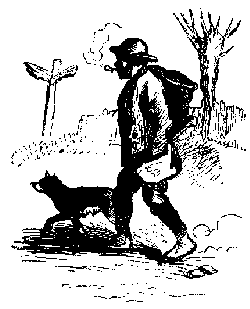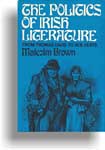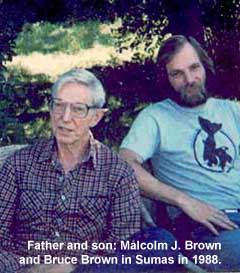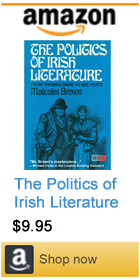Chapter Sixteen
Parnell and Davitt
ISAAC BUTT'S political ideal was proto-Yeatsian. He deplored rancor, party strife, and loose-lipped demagogues. His code of conduct was pure but futile, and he was quickly overwhelmed in the parliamentary jungle. Two months after the 1874 election victory, Butt proposed that the Commons set up a committee to investigate the sources of Irish unhappiness. His motion lost by a vote of 314 to 50. A formal Home Rule motion followed three months later. It lost, 458 to 61. The adverse majority had expanded by a hundred-odd votes since the first try. And everything was going nicely and according to plan, A. M. Sullivan said. The first step toward Home Rule must display factual demonstration before "the mind and conscience of Christendom." Afterward, "this position made good, we shall in due time advance upon another. Courage, men of Ireland! Courage and perseverance! -- we have struck the road that leads to liberty."
Butt himself offered a less hearty exhortation and no optimism at all. Home Rulers, he said after one of these brutal parliamentary rebuffs, "could place their views fairly and distinctly before the British House of Commons, and leave to them the responsibility of rejecting the demands of the Irish people. . . ." His defeatism was contagious, and the membership in the Home Rule League proved a "dismal" disappointment.
II
After half a lifetime overseas, John Mitchel now reappeared in Ireland to criticize through precept and example the limitations of Butt's program. He had been put up in absentia for Cork in the election of 1874, but had not won. He now proposed to put his own oar "into the puddle of Irish politics," to campaign in person in Tipperary, famed for its hospitality to revolutionist vote-seekers: "I am savage against that helpless driftless concern called `Home Rule.'" His campaign promised the voters a new mode of English defiance: if elected, he would refuse to sit, thereby establishing the original model of the great Irish boycotts of Westminster in 1919 and of the Dail in 1922. He was elected but the House refused to seat him -- a disappointment, for until he was seated he could not refuse to sit. He stood a second time, was again elected, and was just being rejected by the House a second time when the commotion was ended by his sudden death at his old boyhood home in Newry, county Down --hence "there's a grave at Newry," as Yeats reported. His brother-in-law John Martin, M.P. for Meath, caught pneumonia at the funeral and ten days later he died too. A by-election was required to fill the Meath vacancy. It was won by Charles Stewart Parnell, twenty-eight years old, a Wicklow Home Ruler, the master of the big house at Avondale, a short stroll from Joyce's favorite non-Dublin topographic feature, Tom Moore's "meeting of the waters."
As a great Protestant landlord, Parnell was considered a lucky find for Home Rule. Barry O'Brien, Parnell's Boswell, met Butt on the street one day looking more cherubic than usual. "My dear boy," Butt said, "we have got a splendid recruit, an historic name, my friend, young Parnell of Wicklow; and unless I am mistaken, the Saxon will find him an ugly customer, though he is a good-looking fellow." Before he could be admitted to the party, the Home Rule council had to sit in judgment. John Martin declared, "I would trust any of the Parnells." A. M. Sullivan said, "Let us see him." The consensus was that they "thought him a nice gentlemanly fellow who would be an ornament but no use," another handsome frontwindow display like Edward King-Harman or Rowland Ponsonby Blennerhassett. The fact that Parnell betrayed this expectation is the starting point for a good deal of biographical speculation. Any landlord of a good Protestant Ascendancy family, so the reasoning runs, should have been a nonentity like the rest of his social class.
To explain how he came to be "a traitor to his class," tradition cites a loathing for Englishmen that he picked up from the chilly hospitality afforded Irishmen at Cambridge. The aversion was said to be reinforced by his mother, an American suffering from an extreme case of Anglophobia inherited from her own parent, Commodore Charles Stewart, Parnell's namesake, the doughty skipper of the frigate Constitution in the War of 1812. But Parnell's own Anglophobia was not absolute. For example, he married the sister of a British field marshal. More important, perhaps, Avondale seems to have been less a gentleman's rural seat than a business enterprise, producing lumber and building stone. The American branch of his family, whom he three times visited, was deep in the mania of speculation in railroading and mining in Henry Grady's New South, and his mother was a Wall Street gambler of great determination but indifferent skill. Like Thomas Davis, Parnell was an impassioned mineralogist and prospector. We have met the creative adventurer so often in Irish nationalist politics that Napoleon's on s'engage has forced itself upon us as a lietmotiv. Parnell represents the pure type.
Among the Irish landlords, he was one of the few who foresaw that the old land system was essentially played out and that the wisest course was to accommodate to reality and sauve qui pent. His rent rolls at Avondale were large; but the universal burden of debt on Irish landed estates made any gross rent figures meaningless. One of his parliamentary colleagues, Frank Hugh O'Donnell, got the impression that he was down at the heels, judging by the shabbiness of his London flat out Gower Street beyond the British Museum. If his appraisal was correct, Parnell found himself in the standard predicament of the British upper-class younger son, forced to bestir himself to make his own way and live up to the family name...
|
|
Table of Contents
|

|
Astonisher.com is pleased to offer these excerpts from The Politics of Irish Literature by Malcolm Brown...
Praise for
The Politics of Irish Literature |
 |
|
"This brilliant study of the intersection of politics and literature in Ireland amounts to a dazzling portrait gallery. Reading it one feels about one the breath, warmth, and passions of the dead all come alive again."
-- Sean O'Faolain in the Manchester Guardian
"Mr. Brown's masterpiece has made me want to hire a nearby housetop and recite whole chunks to every passerby..."
-- Michael Foote in the London Evening Standard
"The author of the best book on George Moore now gives us what is in all likelihood the best book on the politics of modern Irish literature."
-- Virginia Quarterly Review
|
|

University of Washington Professor Malcolm J. Brown (1910 - 1992) with his son, Bruce Brown, in Sumas, WA, July 1988.
|
Additional reading -- Malcolm Brown's George Moore: A Reconsideration. Also see Bruce Brown's commentary on The History of the Corporation for Malcolm Brown's contribution to that work.
|
|
|






